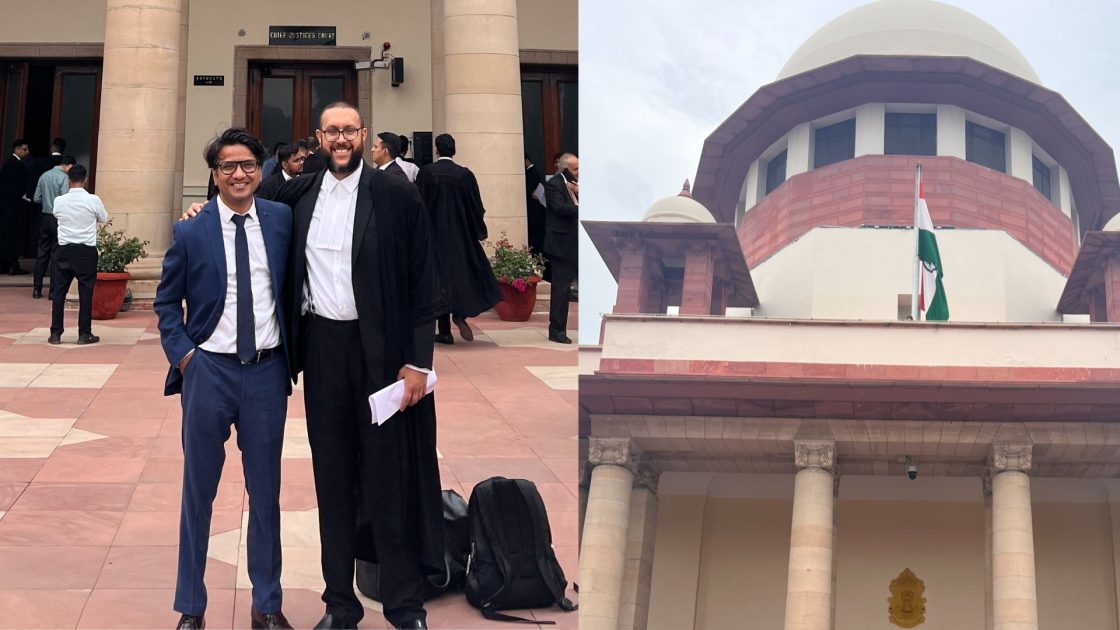On October 6, 2025, the Supreme Court of India admitted a petition challenging the constitutional validity of the Securities Transaction Tax (STT) and issued notice to the Union Government.
This petition has been filed by Aseem Juneja, represented by Advocate Siddhartha K. Garg, to raise fundamental questions about the fairness, legality, and proportionality of how STT operates in India today.
This blog aims to explain in simple language why we approached the Supreme Court, what’s at stake, and how this case could shape the future of financial markets and taxation in India.
What Is STT and Why Does It Matter?
STT, or Securities Transaction Tax, was introduced in 2004 under the Finance Act. It’s a levy imposed on every trade executed on a recognized stock exchange, whether you’re buying or selling equities, derivatives, or mutual fund units.
At the time, the stated goal was to reduce tax evasion in capital markets by replacing the cumbersome system of tracking capital gains on every trade with a simple, upfront transaction tax.
Over two decades later, STT has evolved into a significant source of government revenue, estimated at over ₹44,000 crore in FY 2025. But it has also raised questions of fairness, duplication, and constitutionality, which form the crux of our petition.
Why We Approached the Supreme Court
Our challenge is not against taxation itself. We believe in the government’s right to collect fair taxes that serve the public good.
However, STT in its current form is deeply flawed, and we argue that it violates constitutional guarantees of equality, freedom of trade, and proportionality.
Here are the key issues we have raised before the Court:
1. Double Taxation on the Same Economic Activity
When a trader or investor makes a profit, capital gains tax already applies. STT, charged on the same transaction, effectively taxes the same event twice, once as a transaction and again as income.
This violates the principle against double taxation embedded in India’s constitutional and fiscal framework.
2. Taxing Even Loss-Making Trades
STT is charged even when a trader incurs a loss.
That means an investor who loses money on a transaction still pays tax, something unheard of in most fair tax systems. Taxes are meant to apply to gains, not losses.
3. Violation of Fundamental Rights
We argue that the current structure of STT violates:
- Article 14 (Right to Equality): by treating all trades alike, regardless of outcome or intent.
- Article 19(1)(g) (Right to Carry on Trade or Profession): by imposing an unreasonable and disproportionate burden on those engaged in legitimate market activity.
- Article 21 (Right to Dignity and Livelihood): since continuous losses through unavoidable levies can erode the means of livelihood for small traders and investors.
4. Absence of a Refund or Adjustment Mechanism
Unlike TDS (Tax Deducted at Source), which allows annual reconciliation and refund, STT offers no mechanism for adjustment. Once paid, it’s gone, even if your overall trading year ends in losses.
This creates systemic inequity and punishes participation in capital markets.
The Constitutional Question Before the Court
The Supreme Court will now examine whether STT, as presently structured, passes the test of constitutional validity.
The key questions likely to arise include:
- Is STT a valid “transaction tax” or an indirect way of taxing income?
- Does levying STT on the loss amount to arbitrariness under Article 14?
- Can such a tax exist without any provision for refund or adjustment?
- Does it infringe the right to freely conduct business under Article 19?
The Court’s answers will not just determine STT’s future but may also reshape how India approaches event-based taxation more broadly.
Why This Case Matters for Every Investor & Trader
This petition isn’t about traders alone; it concerns anyone who participates in India’s growing financial ecosystem.
Every investor, mutual fund holder, or derivative participant contributes STT every time they transact. Even a long-term investor unknowingly bears its cumulative cost over the years of portfolio management.
If the Supreme Court finds merit in our arguments, it could lead to:
- Lower trading costs for all market participants.
- Greater fairness between profit and loss scenarios.
- Policy reforms to make India’s taxation system more investor-friendly and constitutionally sound.
What Happens Next
The Supreme Court has issued notice to the Union Government and sought its response.
Over the coming months, both sides will present detailed arguments and data.
We hope the Court’s examination will result in a balanced, principled interpretation that safeguards both the state’s fiscal needs and citizens’ constitutional rights.
We will continue to share updates here as the case progresses — transparently and in the public interest.
A Final Thought
Our intent with this petition is not confrontation, but correction. STT served its purpose once, but as markets evolved, it became a disproportionate burden on honest investors and traders.
India’s constitutional framework demands that taxation be fair, rational, and non-arbitrary. This case is a step toward reaffirming that principle.
We trust the Supreme Court will give this issue the deep, reasoned scrutiny it deserves — and we hope it sets a precedent that strengthens both our markets and our democracy.







